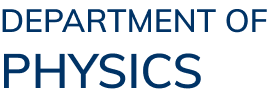Abstract
Electronic structure theory for strongly correlated systems (SCSs) is regarded as the greatest challenge in molecular quantum chemistry and condensed matter theory. Complete active space self-consistent field (CASSCF) theory has played a particularly important role in ab initio treatment of SCSs, but can not be directly applied to extended systems like solids and surfaces. There are continuous efforts in developing various quantum embedding techniques to treat complex SCSs accurately and efficiently. Density-matrix embedding theory (DMET), formulated in terms of the Schmidt decomposition of Slater determinant wave-functions, provides a systematic framework to combine low- and high-level quantum chemistry methods to treat strongly correlated systems. In this talk, I will present our recent efforts of developing and applying DMET-based quantum embedding approaches to strongly correlated single-impurity systems including 3d and 4f single-ion magnets (SIMs) and lanthanide luminescent materials [1, 2].
References
[1] Ai, Y.; Sun, Q.; Jiang, H. Efficient Multiconfigurational Quantum Chemistry Approach to Single-Ion Magnets Based on Density Matrix Embedding Theory. J. Phys. Chem. Lett. 2022, 13, 10627.
[2] Y. Ai and H. Jiang, Exploring Novel Quantum Embedding Methods with a Non-orthogonal Decomposition of Slater Determinants, doi:10.26434/chemrxiv-2024-k5bf2.
Dr. Hong Jiang is a tenured associate professor at College of Chemistry and Molecular Engineering, Peking University. He obtained his Bachelor degree and Ph. D. in chemistry from Peking University in 1998 and 2003, respectively. During 2001-2004, he worked at Duke University, first as a visiting student and then as a post-doctoral researcher. During 2004-2009, he worked as a postdoctoral researcher, first in University of Frankfurt, and then in Fritz Harber Institute of Max Planck Society in Germany. Dr. Jiang’s research interests focus on the development of first-principles approaches to electronic excitations and strong correlation in materials and their applications to advanced functional materials.
